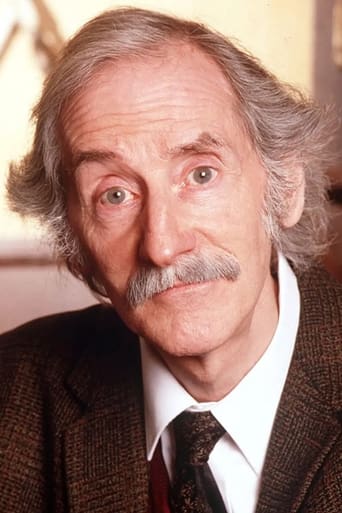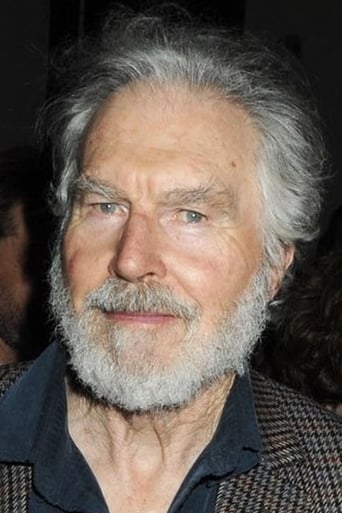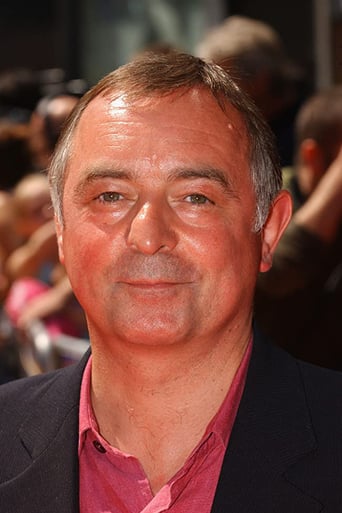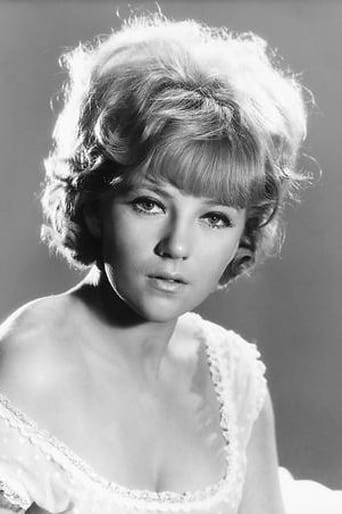Grimerlana
Plenty to Like, Plenty to Dislike
PodBill
Just what I expected
SeeQuant
Blending excellent reporting and strong storytelling, this is a disturbing film truly stranger than fiction
Haven Kaycee
It is encouraging that the film ends so strongly.Otherwise, it wouldn't have been a particularly memorable film
Dr Jacques COULARDEAU
Now in England times are hard,history is getting blocked and hijacked into a civil war after the loss of France. The king, now married, is just as spineless as before and his wife is trying to govern in his place. She cannot get anything from him and her manipulating the nobles around him reveals itself more complicated than she may have thought at first. She gets rid of the Lord Protector but that starts a tremendous uproar and everyone tries to get everyone else's head, and there are many heads to get. He tries to get rid of Richard of York by sending him to Ireland with some troops but that was a pretty bad move because York comes back from Ireland with his troops to get the crown since by simple precedence in the lineage to the throne he is the first heir, which means Henry VI is a usurper, which is absolutely true: Henry IV (a Lancaster) forced Richard II (a York) to give him the crown under duress of course.Add to that the popular rebellion of Jack Cade presented as a rebellion of the Commons from Kent and in fact it is a popular upheaval, not only the Commons but a lot more people. It was in 1450 when France was well lost. No hope on that front. The rebellion is crushed when they reached London. The play gives a lot of life and credit to Jack Cade but it also shows how easy his populace can be manipulated, by him first with the promise of the repealing of money and food and drinks free for everyone. Nothing really has changed and people are so gullible and they believe such blank promises.York starts his own rebellion and manages to meet the king in the royal camp between Dartford and Blackheath. The king is revealed untrustworthy since he has announced Buckingham is in the Tower and at this very moment there Buckingham arrives accompanied by the queen. From there we have a long battle, to and fro in the derelict décor and they kill one another in the most manly way. York is wounded but nothing serious and his main opponents are dead, particularly Clifford Senior killed by York himself. The end is sad since the King has managed to flee with the queen and whoever he could take along to London where he discovers the damage of Jack Cade's rebellion. And there the action stops. To be continued. York and his men are going to London to confront the king.[…]The War of the Roses is probably one of the events in England that created a national feeling to replace the feudal system of vassalage. A new actor comes into the picture and it is the Commons, that is to say the second house of parliament, the normally elected representatives of free people, mostly landowners, craftsmen and shopkeepers or merchants. This is typical of England and Shakespeare did not miss the point. But this new actor on the political scene is nothing but a rebellion and it is purely defeated by force and then a royal pardon. The leader is killed by some local civilian in London. But you have the main idea Shakespeare defends everywhere: when something wrong disturbs the regular order of things then it has to be purged to the very last drop. That means the two conflicting houses will have to drain their claims to give way to another actor coming from the side and it will be the Tudors. They will come to power after the defeat or Richard III in 1485 and the new king will be Henry VII. There is something typically Shakespearean at the end of the play. The menace to the House of Lancaster or the "ghost" menacing it is Richard of York junior, the future Richard III. Shakespeare uses some numerical symbolism to characterize some situations or characters. Richard III is definitely 9 and his defeat is in 1485 which amounts to 1+8=9, 4+5=9, 1+4+8+5=18=9x2. This young Richard says at the end of this play:"RICHARD: My noble father, Three times today I holp him to his horse, Three times bestrid him, thrice I led him off, Persuaded him from any further act." (Act V, Scene iii)He is speaking of Salisbury, a supporter of York. And at this very moment when Richard had accumulate his NINE times, there comes Salisbury and he thanks Richard and says speaking of God:"SALISBURY: I thank you Richard: . . . And it hath pleas'd him three times today You have defended me from imminent death." (Act V, Scene iii)Of course Salisbury goes back to three because God is one in three, at the same time in Shakespeare three has a special value. It is the triple goddess who includes Hecate the goddess of the underworld, it is the three weird sisters of Macbeth and of course the three Harpies or Erinyes, the goddesses of our life time (they spin, measure, cut the thread of our life) and in general three is dynamic, hence unstable, hence a sign of trouble. It is interesting to see how the first time Richard appears he carries in his language the number 9, his devilish fate.In this play there is an episode of witchcraft that brings the banishment of Eleanor of Gloucester, the disgrace of her husband Humphrey, Duke of Gloucester, his subsequent death (certainly by assassination), the burning of the witch herself and the execution of some secondary characters except the intermediary who had introduced Eleanor of Gloucester to the ritual since he was a double agent and had revealed the event before to one side around the king who wanted to get rid of the Duke of Gloucester who was then the Lord Protector. But I must say the play lacks some real unity and density.Dr Jacques COULARDEAU
bkoganbing
The War Of The Roses gets going in Henry VI Part 2. But before that we are treated to a treasure trove of intrigue that would make the Tudors and The Borgias blush.At the end of Henry VI Part One Peter Benson as Henry and Julia Foster as Margaret Of Anjou are wed. They are brought together by the Duke Of Suffolk played by Paul Chapman who has a very good reason. There's a good chance that he and Queen Margaret were kanoodling behind the Duke's back. It was rumored about later on that the son Margaret had was Suffolk's and later his parentage was questioned by the Yorkists.But Suffolk is only one of the nobles who are intriguing against stout old Duke Humphrey uncle to the King and formerly his regent. Seems that Humphrey kicked out his first wife, paid off the church to annul his marriage and illegitimatize his children. He took what we now call a trophy wife who liked to dabble in the black arts and she gets set up good and proper and arrested by those out to blacken Humphrey's reputation. David Burke is the old Duke and Anne Carroll is the trophy duchess Eleanor.While all this is going on the Duke of York who long ago felt he ought to be king as his lineage is better and the present king is an idiot. He's watching all this and when on an expedition to Ireland he turns the troops over to his personal use and loyalty and lands claiming the crown. Helping him out and Shakespeare plants the distinct hint that Bernard Hill as York may have fomented some domestic rebellion. In 1450 The Jack Cade rebellion started with Cade presented as a rather thuggish sort claiming both royal lineage and a plan for social reform that Karl Marx would have found too radical. Trevor Peacock as Cade who sees popular opinion sway with the breeze is who you will most remember from this production.About 20 years of history is compacted into 3 and a half hours. But the characters do hold your interest. We also see Queen Margaret put the backbone into the Lancaster cause as Henry would rather be either in church praying or in the library studying. Back when this was first on television, at least on American television the historical plays were presented in chronological order. So audiences saw how the House Of Lancaster under Henry IV usurped the throne from Richard II and then saw the great warrior King Henry V defeat the French at Agincourt and almost take over France. Then in these first two parts of Henry VI we see how he's just not in the same mold as his ancestors.The War Of The Roses truly deserves a mini-series, I hope the BBC did one or will do one that we across the pond can see. In the meantime this is a fine production of Henry VI Part 2.
Alain English
Henry VI (Peter Benson) has successfully overcome Joan La Pucelle but his marriage to the ferocious Queen Margaret of Naples (Julia Foster) has effectively given France back to the French and undone his father's conquest. Furthermore, civil strife brews as the scheming Duke of York (Bernard Hill) sets the ferocious Jack Cade (Trevor Peacock) upon the King as he sets up his bid to take the crown himself...The sets grow ever darker and the battles ever bloodier, with heads on pikes this time round and other gory deaths. England is headed straight to hell in hand basket and the actors revel in the story and the language.Peter Benson makes an excellent Henry VI, his gentle and frail appearance effectively conveying the monarch's powerlessness. Trevor Peacock, who played Talbot in Part One, makes for a ferocious Jack Cade and the scenes where he commands the masses to rebel are among the most stirring in these plays. Bernard Hill continues to impress as York, and also of note are Brian Protheroe as his eldest son Edward and Ron Cook making his first appearance as the hunchbacked youngest son, Richard...Despite the usual longueurs, it is worthily staged and well performed.
brice-18
If a time machine could take us back to the Globe where this play was first performed, this, I believe, is how it would have looked. The "wooden 'O'" is created again for this lusty Beeb production, and we are treated to a gripping 3+ hours of high-flown politicking in sinewy blank verse. The exposition of a complex period of British history - the build-up to the Wars of the Roses - is admirably clear and so well told! At first we have the nobles conspiring against the thoroughly decent Humphrey, the king's protector (David Burke, bone honest), who, let down by a Lady Macbeth-like wife, is strangled while in the custody of malign Cardinal Beaufort (formidable Frank Middlemass), who himself then dies horribly of remorse. The scheming Suffolk (audaciously lofty Paul Chapman) is executed by pirates, and the Queen cries for revenge while cradling his severed head: Julia Foster, who used to be an insipid actress, has a bold stab at Margaret of Anjou ('she-wolf of France'), while the weird but beautifully spoken Peter Benson as her pious, ineffectual husband King Henry prays and laments. Trevor Peacock is a terrific Jack Cade (with Burke, again, as his henchman) in electrifying scenes of riot and rebellion in the City of London.Towards the end the Duke of York (Bernard Hill), the king's most powerful adversary, returns from Ireland with an army and his three sons, the youngest being deformed Richard, soon to be Richard III. All the while Warwick the King-Maker (Mark Wing-Davey) is waiting in the wings: I can hardly wait for Part Three!




